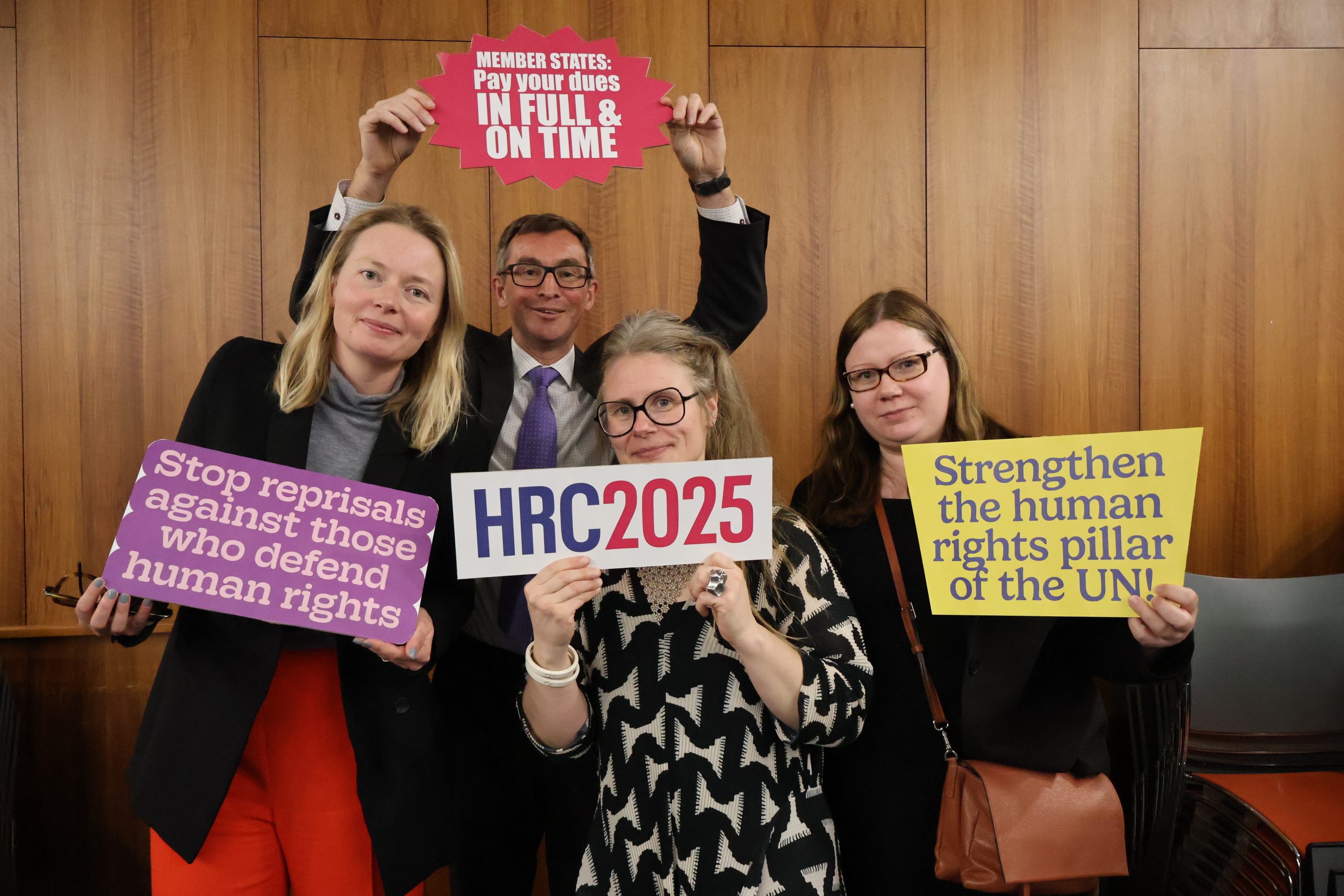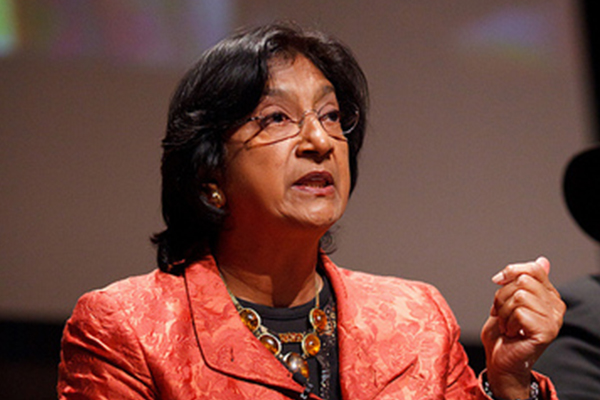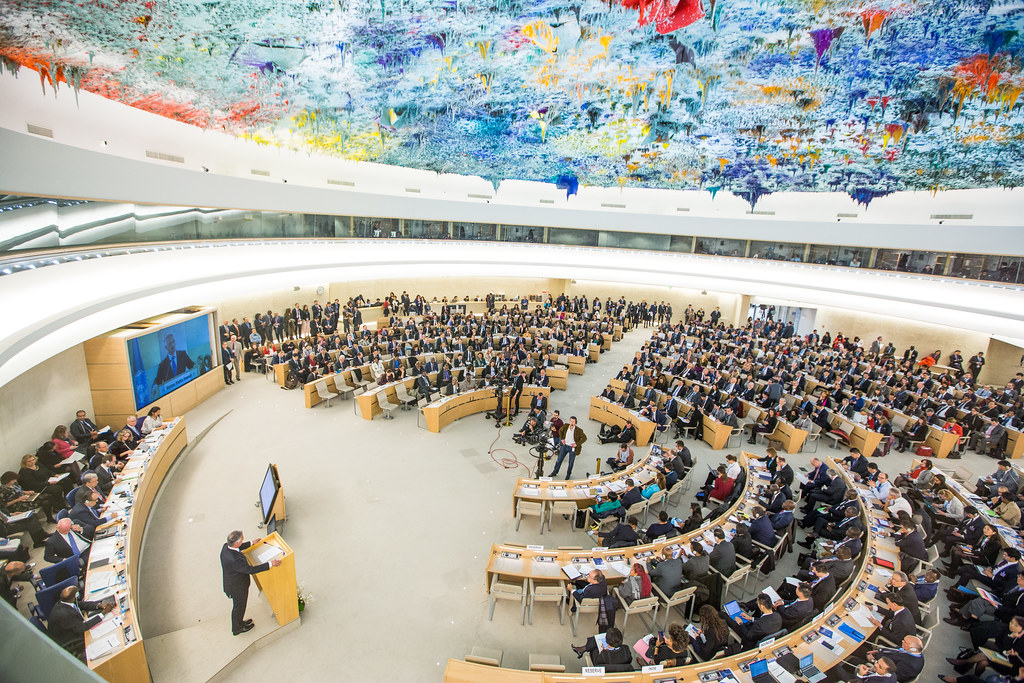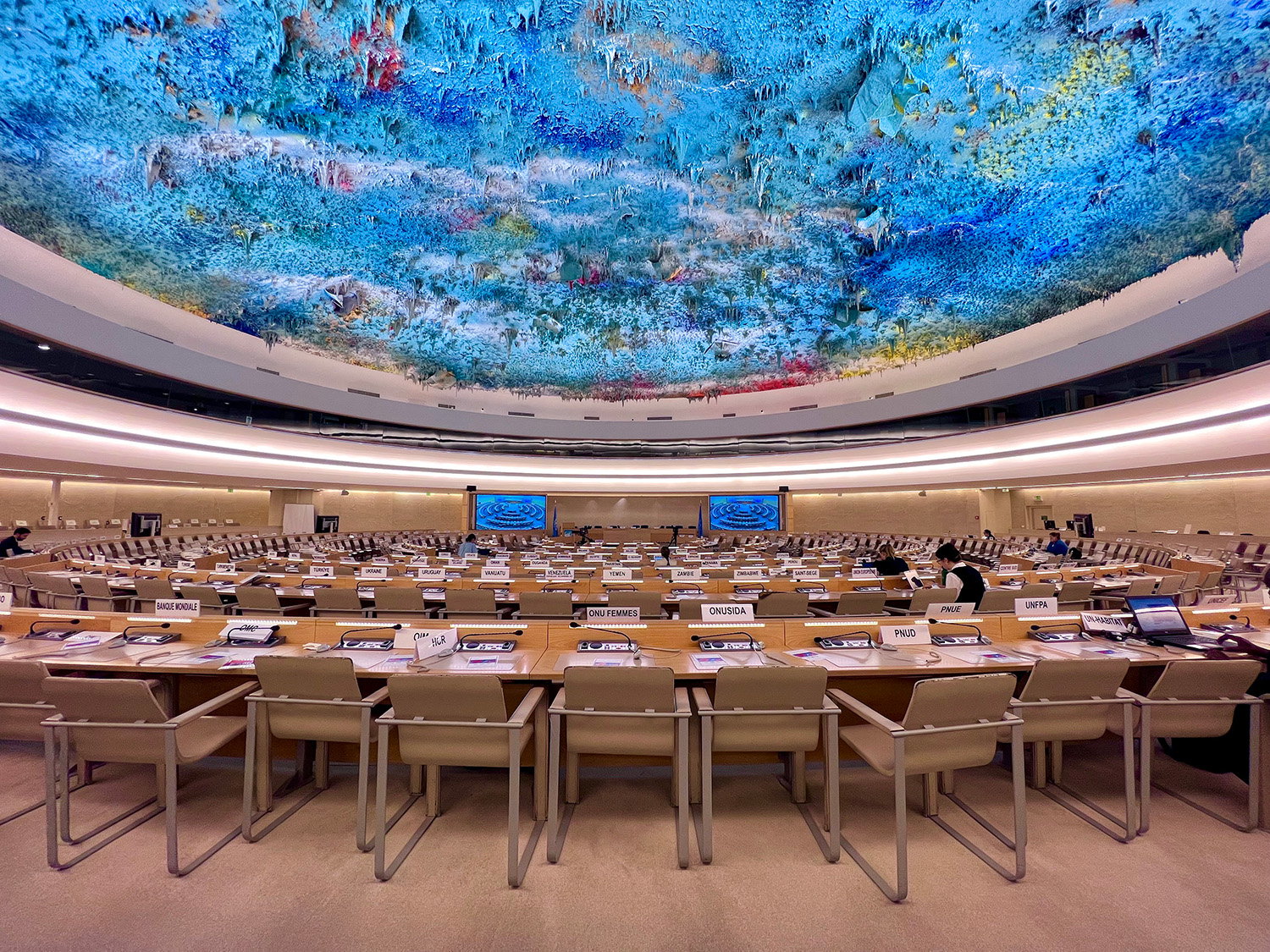By Navi Pillay
It has been 10 years since I took on one of the most challenging and most rewarding roles of my career, that of UN High Commissioner for Human Rights. I continue to follow human rights events closely even though my term ended in 2014. What is happening in the international human rights system this year, the same that we celebrate also 70 years of the Universal Declaration of Human Rights, fills me with worry.
When I look at the course of events at the United Nations Human Rights Council now, I see national sovereignty being unambiguously asserted, and human rights violations and their victims swept under the rug. I need look no further than the self-proclaimed ‘responsible global leader,’ China.
I should be clear it is not the leadership that concerns me, but the message that comes with it. In Geneva now, the message has taken on the warm moniker of ‘win-win’ or ‘mutually beneficial’ cooperation, which China is seeking to advance as a key tenet of the international human rights framework.
The problem with this, of course, is that the resolution it has presented, and which will be voted on this week, hardly mentions human rights, or rightsholders, at all.
The draft resolution is just the latest of a series of attempts, by China and by other governments, to ensure that international human rights law is only as strong as individual national interests allow. What if 50, 40, 30 years ago, the international community agreed that apartheid was just a ‘South African national characteristic,’ and should be accorded respect and presumed a sovereign affair?
Through its resolution, China seeks to downplay the need for scrutiny of the world’s worst human rights violators, and to emphasize questionable cooperation and empty dialogue instead.
What is on offer, if we buy into this vision of cooperation? Nothing less than a ‘community of shared future’ of mankind. Some moviegoers might be tempted to see a kind of mythic Wakanda in this vision.
But many in the global South whom I spoke to as High Commissioner see otherwise. At the national level, some forms of cooperation can lead to exclusion, xenophobia, outsourcing and palm-greasing that displace communities, poison lands, and hollow out governance structures. At the international level, states can cooperate to ignore or even perpetuate the underlying structures of poverty, inequality and patriarchy that create a class of disempowered individuals, vulnerable to human rights violations.
I take a special concern with the resolutions handling of the Universal Periodic Review, one of the landmark tools I saw mature in my time with the UN.
This is a process that arose from consensus among all governments, China included, that no country is perfect and that all can benefit from constructive criticism of how they seek to meet their obligations to each other, and most important of all to their people. The resolution unfortunately downplays the end result we want to see from this review: genuine cooperation with the UN mechanisms, and real human rights improvements for people on the ground.
There are suggestions that we need a restart in international relations, including in the field of human rights. With this resolution, China seems to have stepped up with a solution, following the withdrawal of U.S. international involvement; increasingly inward-looking and conservative politics in European states; and African, Asian and Latin American governments bearing the brunt of conflict, climate change and failed neoliberal aspirations. Many delegations in the Council seem increasingly reluctant or restrained to denounce even those atrocities we cannot deny.
The ability of the global South to stand up to the major powers and call on the UN to be a place for scrutiny and for justice was critical in the anti-apartheid struggle. It continues to be important in the fight against racism, extreme poverty and abuses of corporate power. We need to stand together to defend a strong human rights framework composed of both cooperation and criticism as the best protection of the weak against the powerful, be they nations or individuals.
In my six years as High Commissioner, I committed myself to that framework and that duty. I became familiar with the immense repression faced by human rights defenders, religious and ethnic minority communities, and indeed anyone in China who dared to speak out and stand up peacefully for what they believed in. All this from my Office in Geneva, unfortunately; the authorities never agreed to cooperate with me when I was a UN official, or allowed me to visit.
Last July, Liu Xiaobo – a Nobel Peace Prize laureate some have called ‘China’s Mandela’ and whose release I called for as High Commissioner – died deprived of liberty and described by the Chinese government as a ‘criminal’.
It is my sincere hope that all countries, and especially those whose peoples have made significant sacrifices to uphold the values of the Universal Declaration in their fight against colonialism and injustice, will stand up to this effort. We have invested, time and again, personally and politically, in efforts to ensure that sustainable development and international peace have human dignity at their very centre.
I can’t help but worry that in China’s version of ‘win-win,’ we may all have something to lose.
Navi Pillay is the former United Nations High Commissioner for Human Rights, from 2008-2014.




